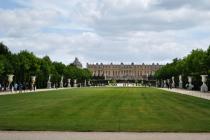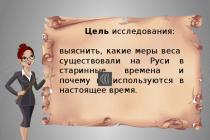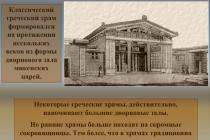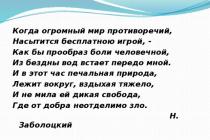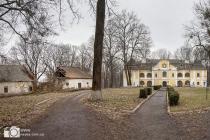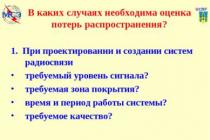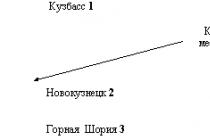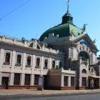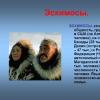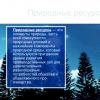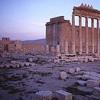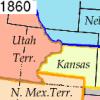Yesenina is equally loved, both communists and anti-communists. The creativity of Yesenin is not uniform: he has works, both for Soviet power and against her.
With Yesenin, not all unambiguously ...
In fact, on the one hand, the poet once wrote a statement with a request to accept him to the Bolsheviks Party, and on the other, as V.F. Khodasevich, "Drunk Yesenin ... shouted to the whole restaurant ..." Bay Communists, Save Russia "... So the Bolsheviks, as this publicly did Yesenin, could not even come to my mind in Soviet Russia."
I will not give memories, I will even try to reason as little as possible, I will simply bring passages from the works of the poet. Let the reader himself decide who was Yesenin - Bolshevik or Anti-Bolshevik.
Part one
Yesenin - Bolshevik.
1. Early poems
Sooty, come to us, red horse!
Fight in the lands of the fire.
We were bitter milk
Under this old roof.
Proles, swallowing us over water
Your deaf rzhanier
And bell-star
Cool shiny.
We are rainbow you - Arc,
Polar circle - to break.
Oh, we take out our globe
ON OTHER.
("Pantokrator", 1919).
Leaves are flowing
In the river on our fields.
Long live the revolution
On earth and in heaven! ("Heavenly Drummer", 1918-19).
Sky - like a bell,
Month - language,
My mother is homeland,
I am a Bolshevik. ("Jordanian Bluebinitsa", 1918)
2. "Song of the Great Hike", 1924
This is how Yesenin writes about white:
If tightly hise
That is stronger.
Men one:
Not trampled b rye.
And how did it go
Here is donikin -
In a hundred miles lay down
Straight in Nick she.
Above such misfortune
In the bed of white rzut.
Valyat rural cattle
And under vodka eat.
Mnut peasant wives,
Girls paw.
"So you need to
Sivolan!
You, man, cool!
Babe, Bestiya!
Sweep scoop us
For placing. "
Now - about the red:
But the strongest is only
Those are alarmed,
That night do not sleep
In leather jackets
Who for poor people
Live and bend happy
Who does not want to pass
Volly Peter Grad.
3. About Lenin
Rows from the poem "Letter to Woman" (1924):
Now the years have passed.
I'm aged in another.
And I feel and think in different.
And I speak for festive wine:
Praise and glory to steering!
Rows from poems "Stans" (1924):
I see everything.
And clearly understand
That the era is new -
Not pound Iiss us
What is the name of Lenin
Noise like wind on the edge,
Giving thoughts
Like mill wings.
Rows from "Twenty Six Ballets" (1924):
Communism -
Banner of all freedoms.
Hurricane Vskipel
People.
On the empire stood
In a row
And peasant
And proletariat.
There, in Russia,
Noborsky Beach
There was our strict father
Ilyich.
Rows from the poem "Guliai-Field":
Monarchy! Evil Smyrad!
For centuries, there were feasts for the beer,
And sold the power of the aristocrat
Industrialists and bankers.
The people moaning and in this horror
The country was waiting for someone ...
And he came.
He is a powerful word
He led us all to the sources of new.
He told us: "To finish the flour,
Take everything in the worker's hands.
No rescue for you - no more -
As your power and your advice. "
And we went under the screech blizzard,
Where his eyes looked:
Went to where he saw
Liberation of all tribes ...
And so he died ...
Crying is permanent.
Do not give the muse the voice of trouble.
From grinding grudge
Salute Last Daden, Daden.
The one who saved us is no longer.
Rows from the poem "Answer" (1924):
But this dirtyness is
Cold planet!
Her and the sun lane
Do not melt yet!
From these passages it can be seen that Yesenin clearly sympathizes Lenin.
Part two
Yesenin-Antibolshevik
The Bolshevik government demanded from people who lived in a revolutionary time so that they submit to the laws of this time. Such a worldview clearly defined the poet E. Bagritsky. Speaking of the revolutionary age, in which he and Yesenina had a chance to live, he wrote:
But if he [a century] says:
"Solges" - solga,
But if he says:
"Kill" - kill ...
Sergey Yesenin since childhood was raised on Christian, Orthodox values, so I preached otherwise. In one of the youthful letters to his friend, the city of Panfilov Yesenin said: "Yes, Grisha, love and regret the people - and criminals, and scoundrels, and liars, and sufferers, and the righteous: you could and can be any of them. Love and oppressors and not stigma shame, but detect people's life masters. "
1. Yesenin against inhumanity
Not a villain, I did not robbed the forest,
Did not shoot the unfortunate dwarf,
I'm just street surfactant,
Smiling to counter persons ("I will not deceive myself", 1922)
In 1919, in the small poem "Kobyl ships" the poet, referring to the beasts, who, in his opinion, became better than people, says:
Won't go anywhere with people
Better to die together with you
Than with your beloved raise the earth
In a crazy near stone.
In the same poem there are such lines speaking its attitude to revolutionary:
Westers of chopped hands
You get into the country of the coming.
In the "letter to a woman" (1924) the poet wrote:
You did not know
That I am in solid smoke
In a rave buoy life
Since Intr. I do not understand -
Where the rock events carries us.
So failed to understand the events, the poet himself removed himself from them. From the same "letters":
And I bowed over a glass,
So, not suffering about any
Retribute yourself
In the ugon is drunk.
Do Yesenin like what is happening? Most probably not:
Friends! Friends!
What split in the country
What sadness in boiling cheerful!
Know because you want me so much
Pants,
Run behind the Komsomol. ("Rus Outgoing", 1924).
Yesenin (for the first time after his foreign journey) spent several days in his native village.
The meeting of the poet with the village is described in his poem "Return to Motherland" (1924). Here is an excerpt from this work:
"Good, my grandson,
Good thing that you did not recognize the grandfather! .. "
"Ah, grandfather, are you?"
And poured a sad conversation
Tears warm on dusty flowers.
. . . . . . . . . . . . . . . . . .
"You, perhaps, will soon be thirty ...
And I'm already ninety ...
Soon in the coffin.
It would be time to grind a long time. "
He says, and all wrinkles his forehead.
"Yes! .. Time! ..
You are not a communist? "
"Not!.."
"And the sisters became Komsomologians.
Such a nasty! Just walked!
Yesterday the icons were thrown off the shelves,
At the church, the Commissioner removed the cross.
Now God has nowhere to pray.
I go sneaky now in the forest,
I pray asins ...
May come in handy ...
Go home -
You will see everything yourself. "
And we go, Topcha in the middle of the puppet.
I smile arable land and forests,
And grandfather with longing looks at the bell tower.
Yesenin repents in his former revolutionary sentiments, as writes in the poem "Mistel" (1924):
And first
I need to hang me
Crushing my hands behind my back:
For the song
Hoarse and offeen
I interfered with sleep
Native country.
2. "Capital"
About "Capital", the Chtimy Bolsheviks book, Yesenin wrote repeatedly, and without much respect.
And here sister breeds
Open, like the Bible, Puzzled "Capital",
About Marx,
Engelse ...
With no weather
I certainly did not read these books. ("Return to Motherland" 1924)
Return, cute!
For you promised the pr.
I am a nephew,
You all uncle me.
Come on, Sergey,
For Marx quietly sit down
I smell wisdom
Boring rows. ("Stans", 1924).
And himself
On the neck of smooth
I say:
"Our term has come,
Come on, Sergey,
For Marx quietly sit down
To solve
Wisdom of boring lines. " ("Stans", 1924).
And says loudly:
"Here is the crank!
He is in life
Rassed a lot ...
But could not overcome
Five pages
From "Capital". ("Mistel", 1924).
Earth, Earth!
You are not metal, -
Metal because
Does not allow the kidney.
Enough to get
On the line,
And suddenly -
"Capital" understands. ("Spring", 1924).
3. "National Country".
In 1923, in a letter A. Kusikov, Sergey Alexandrovich wrote: "I stop understanding, to which revolution I belong. I see only one thing that neither of the February, nor to October ... "
Why so - he explained in the poem "Country of the Nogria":
Gang! Gang!
Countrywide.
Where do not look, where are you not going -
See how in space,
On horseback
And without horses,
I will jump and go hospitable bandits.
These are all the same
Filed as I ...
And once, sometime ...
Cheerful guy
Before the bones, the whole missing
Steppe grass
I came to this city with empty hands,
But with a full heart
And not empty head.
I believed ... I burned ...
I walked with a revolution
I thought the brotherhood was not a dream and not sleep,
That everything in the United Sea will merge -
All the sights of peoples,
And races and tribes.
Empty fun.
Some conversations!
Well what?
Well, we took in return?
The same crooks came, the same thieves
And together with the revolution
All captured ...
This is a monologue of NOMAH. Nasah - a gangster. It is not difficult to guess that Nestor Makhno is hidden under the name of Nomach.
That's what Nah says about the Bolsheviks:
All of you wear sheep skins,
And the butcher grabs knives for you.
All of you're herd!
Herd! Herd!
Can not you see? Do not understand
What equality is not necessary?
Your equality is deception and lies.
Old vile scarca
This world of ideological affairs and words.
For fools - a good bait,
Scounded - decent catch.
Here is another passage:
I ripen thought
About the Russian coup,
If only we firmly come together,
As before in our work.
I do not kiss the king
And the rulers also do not climb,
But I want to walk
And under powder, and under the gland.
I want to call those
What the Marx is fat like Yankees.
We will see their courage and laughter,
When our tanks move.
It seems that Yesenin on the side of NOMAH and invests in the mouth of the gangster its own intimate thoughts ...
Completely different is the Jew-Communist with speaking surname Chekists.
This is what Chekists talk about Russian people:
Your mother in this!
Wind like a crazy miller
Spins mills of clouds
Day and night...
Day and night...
And the people are sitting, a slacker,
And does not want to help yourself.
There is no landslide and hypocritical
What is your Russian plain man!
Kohl he lives in the Ryazan province,
So the Tula does not want to rush.
Whether Europe is?
There you are not these huts,
Which, like stupid chicken,
Heads needed a long time for an ax ...
I am a citizen from Weimar
And came here not as a Jew,
And as having a gift
Take the fools and animals.
I swear and I will stubbornly
Curse you at least thousands of years
Because...
Because I want to restroom,
There are no restrooms in Russia.
Strange and funny you people!
Lived the whole century
And built temples of God ...
Yes, I am their long time ago
Rebuilt in the place of the village.
Haha!
What do you say, Zamarashkin?
Well?
Or you disappoint
What do your country scold?
Poor! Poor Zamarashkin ...
4. "Message" Evangelist "Demyan."
In April-May 1925, when in the whole ten rooms of the newspaper "True" printed one of the most anti-Christian leaks of Demyan poor - the poem " New Testament Without the declaration of the evangelist Demyan, "Yesenin was the only one at that time by the poet, who openly stood on the defense of Christ, writing a poetic" Message "Evangelist" Demyan. "
This work I want to lead entirely:
I often reflected for which I was executed,
What did he sacrifice his head?
For that, that, the enemy of Sabbath,
He is against any rot
Deviciously raised his voice?
For either that in the country of Pilate,
Where Caesar is full and light, and shadow,
He with a bunch of fishermen from local villages
For Caester acknowledged only the power of the Zlata?
For that, that, breaking on the part only itself,
He was a merciful and a bit of burning
And everyone blessed, painfully loving
And young children, and dirty prostitutes?
I do not know, Demyan, in the "gospelling" yours
I did not find a truthful answer.
There are many boyfriends in it,
Oh, how many of them are in it,
But the words are not worthy of the poet.
I am not from those who recognize Popov,
Whoever believes in God without
Who forehead is ready to expand
Praying for every church threshold.
I do not like religion slave,
Submissive from the century and before the century,
And faith in my wonderful weak -
I believe in the knowledge and strength of a person.
I know that, seeking the wonderful path,
Here, on Earth, not parting with the body,
Not us, so someone else has to get
Truly to the divine limits.
And yet, when I read in the truth
Income about Christ of Ruddily Demyan,
I was ashamed so as if I got
In the blustery, a spelled spot.
Let Buddha, Moses, Confucius and Christ -
Distant myth, we understand that
But still it is impossible, like a one-year-old dog,
On everything and all chuck in the lamin.
Christ - the son of a carpenter - once he was executed,
(Let it be a myth), but still, when passer
Asked him: "Who are you?" - he answered him
"Son of man", and said: "Son of God".
Let myth Christ, let the myth of Socrates,
And it was not in the country of Pilate,
So, from this and coming in a row
Do not care about everything in a person holy?
You experienced, Demyan, just one arrest,
And you whine: "Oh, the cross I fell a luty"!
And what's when Goligofsky gave you a bone
Ile a bowl with hurt Cickuch?
I had enough of your greatness to the end
The last time, according to them, too,
Bless the whole world under the gracious crown
And about the immortality to teach on the mortal bed?
No, you, Demyan, did not insult Christ,
You did not hurt him with your pen Nimalo.
The robber was, Juda was,
You only lacked you.
You are clots of blood at the cross
I shoved the nozzles like fat bors.
You just grew into Christ
Efim Lakeevich Courtov.
But you accomplished the double and grave sin
With her cheap bolad nonsense:
You insulted the poets free shop
And small talent covered with a big shame.
After all, there, abroad, read your "poems",
Probably gloat Russian clikulas:
"More a plate of Demian's oars,
Checkwear, my light, please exhaust! "
And the Russian peasant, reading the "poor",
Where the exemplary blud was printed by a doublet,
More desperately dying to Christ
And the communists mat will send at the same time.
It seems to me that it is not necessary to comment on this work: the position of Yesenin is clear and without comment.
5. Shepherd Petya
Yesenin, despite all his seriousness, had a good sense of humor. This is confirmed by such a work of the poet as "a tale of the shepherd dog, his commissarism and cow's kingdom." It tells about how shepherd Petya becomes a commissioner, however, does not cope with his duties and again goes to work as a shepherd. The Tale of Yesenin ends with the following typewrites:
Heavy in light
To be for all examples.
Whether you are better, Petya,
Previously, the pioneer.
Kids in the coolness,
In the wet day of autumn,
Posted by that fairy tale
I am Sergey Yesenin.
Posted a fairy tale in two and a half months to the death of the poet.
6. The inconsistency of Yesenin
Yesenin sincerely tried to figure out what is happening in the country:
Publisher nice! In this book
I indulge in new feelings
I study comprehend in every mig
Communication bold rus. ("Publisher Nice! In this book ...", 1924).
Yesenin did not want to be outcast in the Soviet state:
I want to be a singer
And citizen
To everyone
As pride and example,
Was real
And not a summary son
In the Great States of the USSR. ("Stans", 1924).
And at the same time Yesenin was dissatisfied with the Bolsheviks.
I wanted a poet or not, but notes of discontent penetrated into his work:
So sad on earth,
As if in the apartment,
In which the year was not soap, not meli.
Some krenovin in the world
The Bolsheviks have taken place.
("Zarya East", 1924).
And although in this work it is just about the Soviet edition, it is felt that the criticism also aimed at the Soviet government itself.
It should be noted that Yesenin was not afraid to openly express his negative opinion on political literature. So at a meeting of proletarian writers in 1921 in the People's Commissariat of Enlightenment, the poet said: "They talked about literature with the Marxist approach. No other literature is allowed. It has been three years old! Three years you write your Marxist nonsense! Three years we were silent! How much will you hide us a throat? And ... who needs your Marxist approach? Maybe tomorrow your Marx will die ... ".
Conclusion
No wonder G. Ivanov called the poetry of Yesenin "Anticianship against God." It was religiousness that Esenin helped to preserve the human face, did not give spiritually to degrade ....
Was Yesenin Bolshevik or not? Probably not.
But in any case, Yesenin was a patriot of his homeland, which confirm his wonderful lines:
But then,
When in the whole planet
Communion tribes,
Lies and sadness will disappear, -
I will sing
All the creature in the poet
Sixth part of the Earth
With a brief "Rus".
Program for high school students
We will be gathered for a common table, where the face of various social strata of society will meet, different political parties of the beginning of the 20th century: Left esters and Bolsheviks, revolutionary combs and fists, conscious proletarians and backward peasants, Poets of Prel Toletchti and representatives of the "borneling" bourgeois literature.
We will touch on our dispute to many topics of the pre-and post-revolutionary period. Here is some of them:
- "Screaming" slogans of the new power and poetic takeoff S.A. Yesenin.
- "Civil War in the village" and the resistance of the ECERO-Menshevik opposition in the councils.
- "There may be only two parties: one in power, another in prison" (A.N. Bukharin). The role of advice in the creative fate of the poet.
- "Plant the bourgeoisie on the eight ... And give the proletariat for bread" (V.I. Lenin). Reducing the population of Soviet Russia and the critical position of the villages, on the example of Konstantinovo.
- The long-awaited "Decree on Earth" as opposition to the Decree "On Emergency Powers ..." Lenin.
- Vera S.A. Yesenin to the updated Russia ("Heavenly Drummer", "Transfiguration", "Inony" and unconscious concern for her future ("rural part-class", "Country of the Nogodyev")
- IMAZHINISM LOVE A "SHUTVSKY RESERVEY FOR THE FORM" AND folk art As a standard of present imagery.
- Twilight, betrayal, permissiveness of new "friends" of the poet (Blumikina, Ustinova, Trotsky, Kameneva) and the waste of Yesenin from the Pleiads of the peasant poets.
The program is accompanied by reading poems S.A. Yesenin, a story about his personal life.
The duration of the program with an excursion in the museum is 1 hour 30 minutes.
Rogova Anastasia05/10/2019 at 23:40
He allowed himself to do not care about recognized authorities, bought in the adoration of secular beauties, lived with a good one and ... acutely for the cute village. This is all about Sergey Yesenin. Around the figure of the Great Poet still many mysteries and secrets. Including the terrible departure from life in the hotel "Angletter" ...
On October 3 (on the old style of September 21), 124 years old since the birth of the "last poet of the village", as Sergey Yesenin himself called himself. He really appeared by the poet, and the Ryazan village of Konstantinovo formed a character, religious beliefs and views on the rest of your life. And in whatever cities, and for whatever great events Yesenin then did not shine (and he had a chance to read his poems and before the Empress Maria Fedorovna), the village in it remained the main beginning. The view of Sergey on life is a stubborn and alert, slightly mocking, in something limited, in something blurred wide view of the Russian peasant.
When young Yesenin - the talent was already recognized in his homeland, with the publications and the blessing of the teachers, arrived in Petersburg, then did not come to an empty place (as he flirtally told and wrote), but clearly understand how he needs to behave and what he was waiting for him Literary circles.
Nikolai Klyuev, the founder of his own mug of "Novokrestendian" poetry, immediately guessed in the talented Zlatovlas, a led from the province of talent, suitable for his program of speeches, and thoughtfully accepted the young man under the wing. Live Nikolai Klyuv today, he would be a stunning PR or Producer.
At the beginning of the 20th century, interest among the creative intelligentsia towards the village increased hundreds. And Klyuev, himself having peasant roots, perfectly understood that he would hit the public gathering in poetic evenings. He and Yesenin, in the peasant perfectly stylized shirts, spidered by the Kushaki (and sometimes in the naps), with the hair, invited lard, read poems from the scene about the village, about the Russian longing - with mandatory birch trees, horses, expanses and peasant hazards.
Klyuev himself reminded the sort of Mikul Selinianovich, and the young, with the gold curls of Yesenin - Shepherd Lelia. They both as if they came from Lubka, showing the Petersburg public exactly such a village that she wanted to see: picture, epic, fabulous. And the appearance and verses of Yesenin were the quintessence of this fictional village. Success was grand. About the "peasant" poets spoke everywhere. The ladies were crying from delight at the sight of Golden Kudrey Sergey, and masted poets flasherly clapped folk yields on the shoulder.
But the keys, in his free from speeches, sat in their luxury hotel apartments, reading in the original of foreign authors, and Yesenin mastered the nightlife of the northern capital. Nicholas always reflected disapprovingly to his young comrades, who, instead of reasoning about the purpose of Russia, preferred to have fun. It is not surprising that the creative duo soon collapsed, and the keys sharply condemned her former protégé.
With Anatoly Mariengoof and Vadim Shershenevich, Yesenin created a new direction in poetry - IMAZHINISM, based on the understanding of the main goal of creativity, as creating an image. But Esenin's poetry did not fit under any literary framework. The poet is rapidly cultivated, and his poems were also rapidly changed. Only one thing remained unchanged - bitter tenderness to the village. He missed her - by childhood, by hopes. Although, at that time, Sergey had already everything, which can only dream of a poet.
Glory, recognition, success in women, constant boots - all this gradually turned Yesenin from a peasant healthy guy in a hysterical and capricious lifestyle. Heavy praise and worship of the fans were forced to believe in their own genius. Yesenin considered himself not only the "last poet of the village", but also the first poet of Russia. He did not love Mayakovsky - he was afraid that he would take his listeners and recognition. I shouted when I saw newspaper articles about Mayakovsky: "I will die under the fence, on which bills will be disclosed with the announcement of the Mayakovsky evening!". Friendship with Mariengoof also ended with a complete gap.
Oddly enough, only the label and caustic Zinaida Hippiiius, who did not love either Yesenin himself nor his poems guess weakness The poet is early glory. And she predined that it was the "copper pipes" and destroy this "Cherub". Yesenin on the warning "Hippiusihi" did not pay any attention. He generally treated representatives of symbolism, especially the eldest, without the slightest respect. Sergey was sure that he himself knew perfectly what was creativity, and how the real poet should live. Respired from representatives of the older generation Sergey Yesenin only block. Used, but slightly downward, condescending.
Chief Nedug
Friends and acquaintances of the poet agree that the alcoholism of Yesenin and became the first cause of its premature care "in the country where you quiet and grace". The poet himself, answering on December 5, 1925 for questions when filling out an outpatient card, answered in the column "Alcohol": "Many, from 24 years old. There, the hand of the attending physician is ruthlessly derived: " Delirium tremens, (hallucinations). " At the beginning of his bohemian life young healthy organism Ryazan guy coped with mandatory partitions. Yesenin even managed to organize "unloading" days. In 1921 he gladly celebrates in a letter to his friend Anatoly Mariengofu: "So I will not drink so, and today, for example, I even completely refused to look at a drunken gruncher. My God, what is the nastiness, and I probably became even worse. " But there was not enough poet for a long time. IN last year Yesenin became his life, according to the expression of the same Mariengof, "no more than one hour per day. From the first, morning, glasses have already been temporary consciousness. "
In 1922, Sergey Alexandrovich complains in a letter to his poetic "mentor" Klyuev: "I am very tired, and my last winding disease absorbing me completely." Being in America with the wife of Aseedor Duncan, Yesenin was predened to epileptic seizures. In fairness I must say that not only on the amount of whiskey drunk, but also from its quality. At that time, America was shaking the "dry law", because in the morning I had to take moonshine surrogates on the chest. A. Duncan in the newspaper Herald Tribune wrote, trying at least somehow to harm her husband and explain the drunken Shabashi with a beating of mirrors in hotels: "The attacks of spiritual disorder that Enesenin suffers, occur not only from alcohol ... as well as blood poisoning from consumption" Forbidden "American whiskey, in what I have a certificate of one famous New York doctor who treated Yesenin with similar seizures in New York ...".
About relationships with power
The adepts of the violent death of the poet are asleep on the fatal conflicts of Yesenin with the authorities. Conflicts were, but only on the soil of the Kabatsky Boss of the poet. Yesenina was delivered to the police. But not to torture, but for "detection". I quote him together according to Peru V. Khodasevich, who closely knew Yesenin: "Regarding Esenin, an order for the police was given in 1924 - to deliver into a plot for extermination and let go, not giving the case of further move." Wait is quite touching " The only poem, which, with a huge stretch, can be attributed to a critical in relation to the authorities is the "country of the villains". There, Yesenin has a hero on the name Labman with the pseudonym of Chekists. If someone does not know, the name of one of the leaders of the revolution of Trotsky-Bronstein - Liebe. Is this coincidence could have been fatally offended by Laba Davidovich? There are other "terrible" literacy that Makhno says (in the poem gangster nash): "Herd! Herd! ... Your equality is deception and lies. For fools - a good bait. Scounders - decent catch. " But the gangster and should say the horror stories, then he is a gangster. That's all the dissident. But how many perturbed rows Yesenin poured into the paper in favor of the Bolshevik affairs! And on the death of Lenin, the poet responded as only a big poet Lirik could respond: "And now he died ... who saved us, no more. And those whom he left, the country in the ravenment must be drained into concrete. "
Yesenin hostility to Bolsheviks is a myth. Of course, on a drunken bench, Sergey Alexandrovich began to Fordabach and, it happened, uttered all the dimensions, but the authorities were condescending to his kabatskom. If he had a danger to the authorities, he would easily be accused of some conspiracy and slapped, as, for example, the poet Nikolai Gumilyov. Yesenin was on a short foot with many security officers. In particular, she loved to carry on the parties of the famous Chekista-Mokrushnik Yakov Blumikin, who had chosen the German ambassador in the summer of 1918. Yesenin, according to Khodasevich, could offer an honest company to go look at the "Constra" shooting. "I'll arrange it to you through Blumikin one minute," the poet Lirik quite seriously declared.
Yesenin in Russia after the death of Stalin, according to official data, was long debunked and exposed. In the textbooks of the 5th anniversary of the 50s, he was dedicated to him several lines, the purpose of which was to inspire Soviet schoolchildren that Yesenin had no need to read: he is a second "petty-bourgeois" poet, an indiscriminate era ...Nor in print, nor on Radio the name Yesenin never mentioned. From the libraries of his books seized. In short, Officially, Yesenin was forgotten and went to the archive forever ...
And the popularity of Yesenin, meanwhile. His poems in the lists were diverged throughout the corners of Russia. They are memorable, they sob like songs. The circles of his fans called the "Bride of Yesenin" occurred in the 50s-60s. Once in the conditions of relative freedom, "displaced persons" (emigrants) reissued his poems. And these sloppy printed and not suicide books Boyko diverged not only in camps, but also in the middle of old emigrants.
Nowadays such an amazing fact appeared: the sixteen-year-old "Yesenin Bride", and a fifty-year-old, converge for Yesenin. Two poles, between which there is nothing in common, converge on Yesenin - converge in Russian poetry ...
But Yesenin is long dead. And, merciless to alive, Bolshevism, was, extremely indulgent to the dead, especially famous. This is understandable: the attributes of the "Great October" at the present time will no longer meet. One mummy Lenin is not enough. This negligent and fill with success, the different glorified dead, different "Gorky Cities", "Mayakovsky Square", etc. There would be a square and for Yesenin, if the sins performed by him only during their lifetime were listed ... But Yesenin has an unforgivable sin in general, the sin of posthumous. Having received immortality, Yesenin does something that failed in a thirty years of anyone from living - unites people with the sound of a poetic song, where the consciousness of the general guilt and the common fraternity merge in hope and faith ...
That is why they tried the Bolsheviks to inspire that Yesenin was not for love. That is why he was declared a "indiscriminate era" ...
- © "I am a bodyguard" 1995 (special issue) George Ivanov

